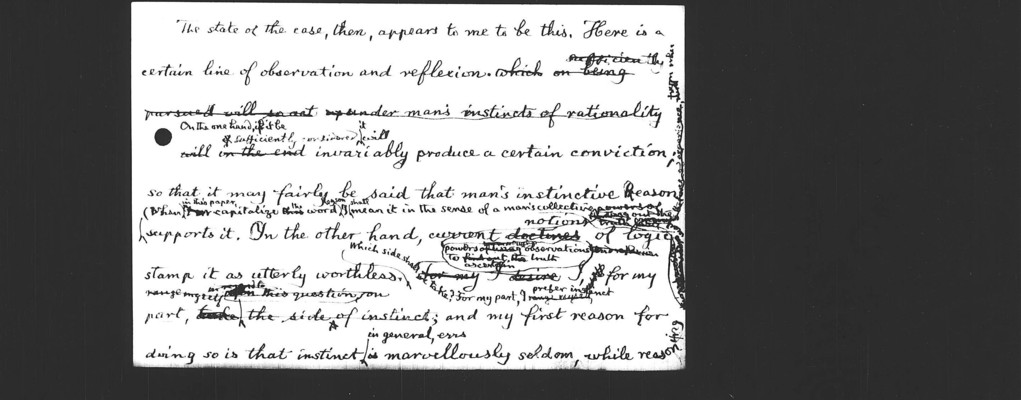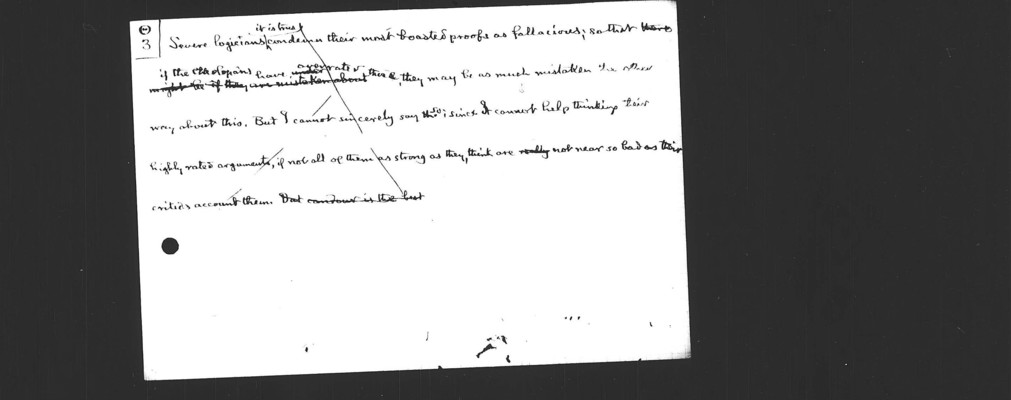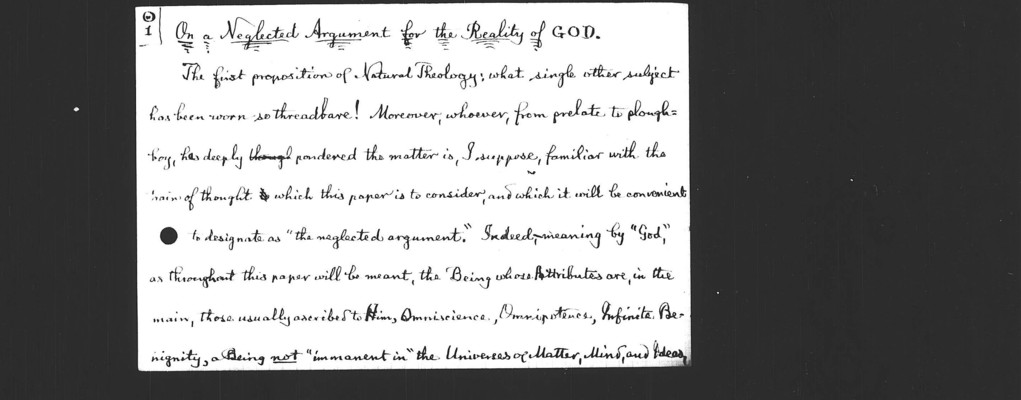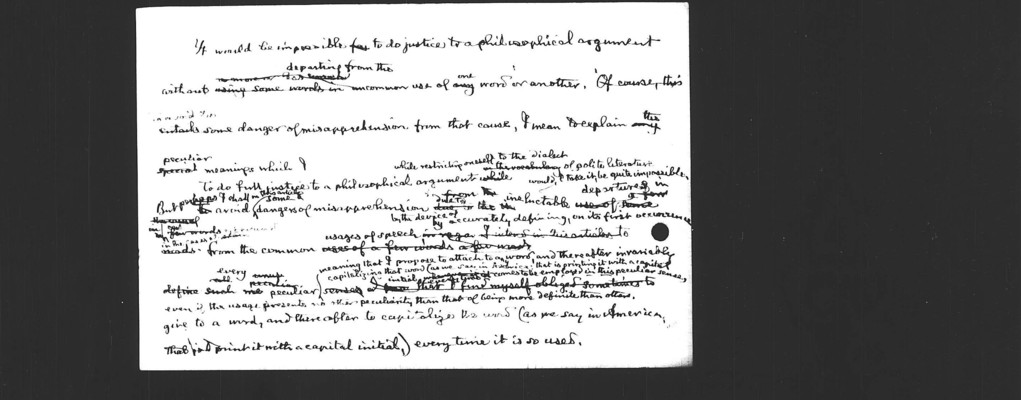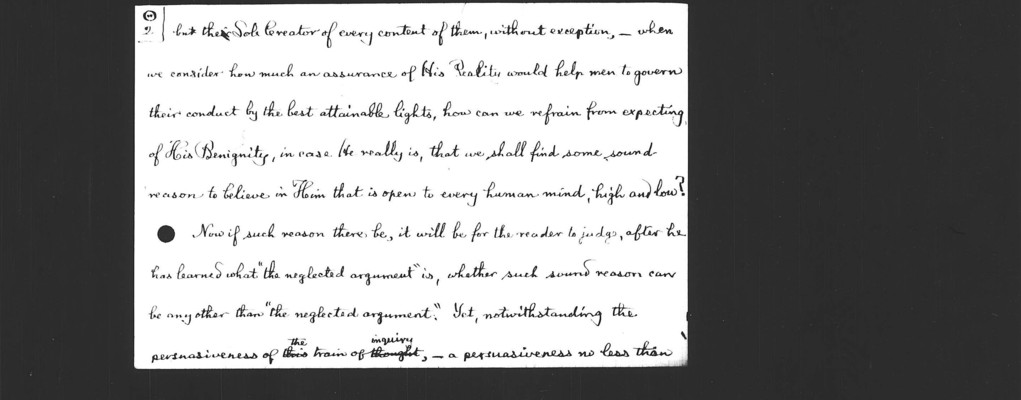Pages
16
The state of the case, then, appears to me to be this. Here is a certain line of observation and reflexion. On the one hand, if it be sufficiently considered, it will invariably produce a certain conviction; so that it may fairly be said that man's instinctive Reason (when in this paper, [I] capitalize the word Reason I shall mean it in the sense of a man's collective powers of using observations to ascertain the truth) supports it. On the other hand, current notions of logic stamp it as utterly worthless. Which side shall we take? For my part, I prefer instinct; and my first reason for doing so is that instinct in general, errs marvellously seldom, while reasoning
17
O..3
Severe logicians it is true condemn their most boasted proofs as fallacious; so that if the theologians have overrated these, they may be as much mistaken the other way about this. But I cannot sincerely say so; since I cannot help thinking their highly rated arguments, if not all of them as strong as they think, are not near so bad as their critics account them.
18
O..1
On a Neglected Argument for the Reality of GOD.
The first proposition of Natural Theology: what single other subject has been worn so threadbare! Moreover, whoever, from prelate to plough-boy, has deeply pondered the matter is, I suppose, familiar with the chain of thought which this paper which this paper is to consider, and which it will be convenient to designate as "the neglected argument." Indeed, meaning by "God," as throughout this paper will be meant, the Being whose Attributes are, in the main, those usually ascribed to Him, Omniscience, Omnipotence, Infinite Benignity, a Being not "immanent in" the Universes of Matter, Mind, and Ideas,
19
It would be impossible to do justice to a philosophical argument without departing from the common use of one word or another. To avoid the danger of misapprehension from that cause, I mean to explain the peculiar meanings which I
To do full justice to a philosophical argument while restricting oneself to the dialect of polite literature would, I take it, be quite impossible. But perhaps I shall avoid in this article some dangers of misapprehension due to ineluctable departures in the cases of a few words from the common usages of speech by the device of accurately defining, on its first occurrence, every peculiar meaning that I propose to attach to any word, and thereafter invariable capitalizing that word (as we say in America: that is printing it with a capital initial every time [it] comes to be employed in this peculiar sense, even if the usage presents us other peculiarity than that of being more definite than others give to a word, and thereafter to capitalize the word (as we say in America, that is to print it with a capital initial,) every time it is so used.
20
O..2
but the Sole Creator of every content of them without exception,—when we consider how much an assurance of His Reality would help men to govern their conduct by the best attainable lights, how can we refrain from expecting of His Benignity, in case He really is, that we shall find some sound reason to believe in Him that is open to every human mind, high and low?
Now if such reason there be, it will be for the reader to judge, after he has learned what "the neglected argument" is, whether such sound reason can be any other than "the neglected argument." Yet, notwithstanding the persuasiveness of the train of inquiry,—a persuasiveness no less than
